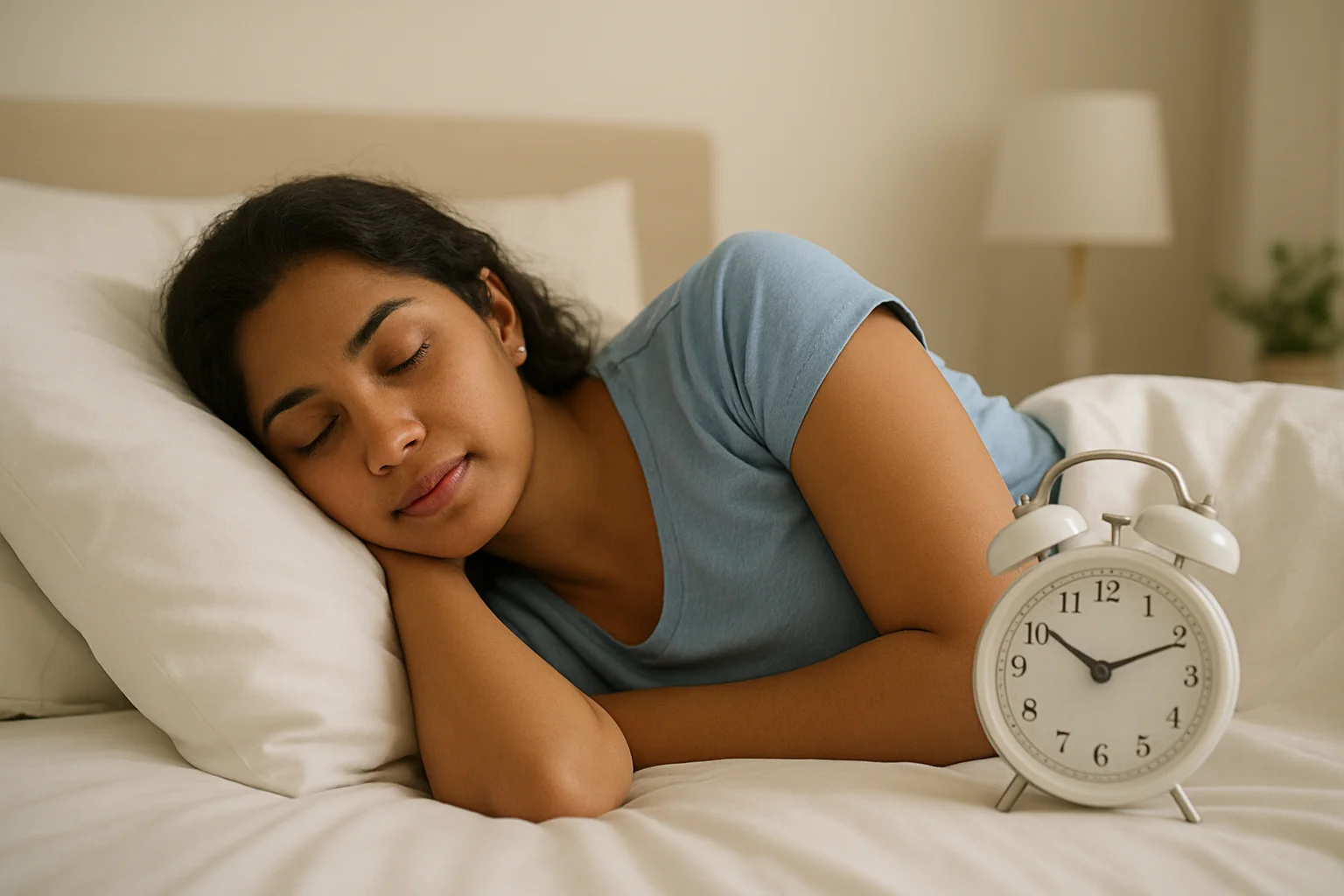The Hidden Link Between Sleep Quality and Weight Management

When it comes to losing weight, most people focus on diet and exercise — and rightly so. But there’s a third pillar of fitness that’s often overlooked: sleep. In today’s fast-paced world, many sacrifice sleep for productivity or entertainment. Yet, quality rest plays a crucial role in metabolism, hormone regulation, and overall fat loss.
At NuFitLife, we believe that sustainable fitness isn’t just about how hard you train — it’s also about how well you recover.
Let’s explore how sleep affects your weight loss journey, and how you can make it work in your favour.
The Science: How Sleep Affects Metabolism
Your metabolism — the process of converting food into energy — functions best when your body is well-rested. Lack of sleep slows this process, making it harder to burn calories efficiently. Research shows that even a few nights of poor sleep can trigger insulin resistance, meaning your body struggles to use glucose for energy. As a result, more glucose gets stored as fat, particularly around the belly area.
In short:
Insufficient sleep equals slower metabolism and increased fat storage.
The Hormonal Connection: Ghrelin & Leptin
Two major hormones regulate your appetite and fullness cues: Ghrelin – the “hunger hormone” that increases appetite, and Leptin – the “satiety hormone” that tells your brain you’re full. When you don’t get enough sleep, ghrelin levels rise while leptin levels drop, creating a perfect storm for overeating.
You feel hungrier, less satisfied, and tend to crave high-calorie comfort foods like sweets, fried snacks, and fast food — all of which can derail your fat loss efforts.
Sleep and Cravings: Why Late Nights Lead to Overeating
Ever noticed how you crave snacks during late-night Netflix sessions? That’s not just lack of willpower — it’s biology. Sleep deprivation activates the brain’s reward centers, making junk food seem even more irresistible. When you’re tired, your self-control weakens, leading to emotional eating and late-night snacking. Beyond the extra calories, eating late disrupts digestion and your circadian rhythm, making it even harder to lose weight effectively.
Cortisol: The Stress–Sleep–Weight Triangle
Poor sleep increases cortisol, your body’s primary stress hormone. Elevated cortisol triggers fat storage around the abdomen and increases cravings for sugary foods. Chronic stress from sleep deprivation can also lead to emotional eating, fatigue, and reduced motivation to work out — all of which interfere with your weight loss goals.
Remember:
Managing stress starts with managing sleep.
Quality vs. Quantity: How Much Sleep Do You Really Need?
It’s not just about sleeping longer — it’s about sleeping better. Adults generally need 7–9 hours of quality sleep per night. However, poor-quality sleep (frequent waking, noisy environment, or irregular sleep patterns) can still leave you feeling tired and hormonally imbalanced.
Here are a few tips to improve sleep quality:
- Maintain a consistent sleep schedule (even on weekends).
- Limit caffeine and screen time at least an hour before bed.
- Create a cool, dark, and quiet sleeping environment.
- Avoid heavy meals or alcohol close to bedtime.
The Sleep–Exercise Connection
Good sleep doesn’t just help recovery — it enhances workout performance, focus, and motivation. When you’re well-rested, you train harder and recover faster, improving strength and fat loss outcomes. On the flip side, lack of sleep leads to fatigue, slower reaction times, and reduced endurance, making workouts feel harder and less effective.
Simply put:
Better sleep equals better workouts and better results.
Putting It All Together
Think of sleep as your body’s reset button. It balances your hormones, restores your muscles, controls hunger, and keeps your metabolism running smoothly. Even if you’re strict with diet and consistent with workouts, neglecting sleep can stall progress.
So, the next time you’re tempted to stay up late scrolling or binge-watching, remind yourself that your fat-burning process works best while you’re asleep.
Sleep Well, Lose Well
Weight loss isn’t just about eating less or moving more — it’s about recovering better. Prioritizing quality sleep may be the missing link in your transformation journey. By giving your body the rest it deserves, you’ll notice improvements in your waistline, mood, energy levels, and overall well-being.
At NuFitLife, we empower you to train smart, eat right, and rest deeply — because true fitness begins when your body and mind are in sync.











Comments are closed